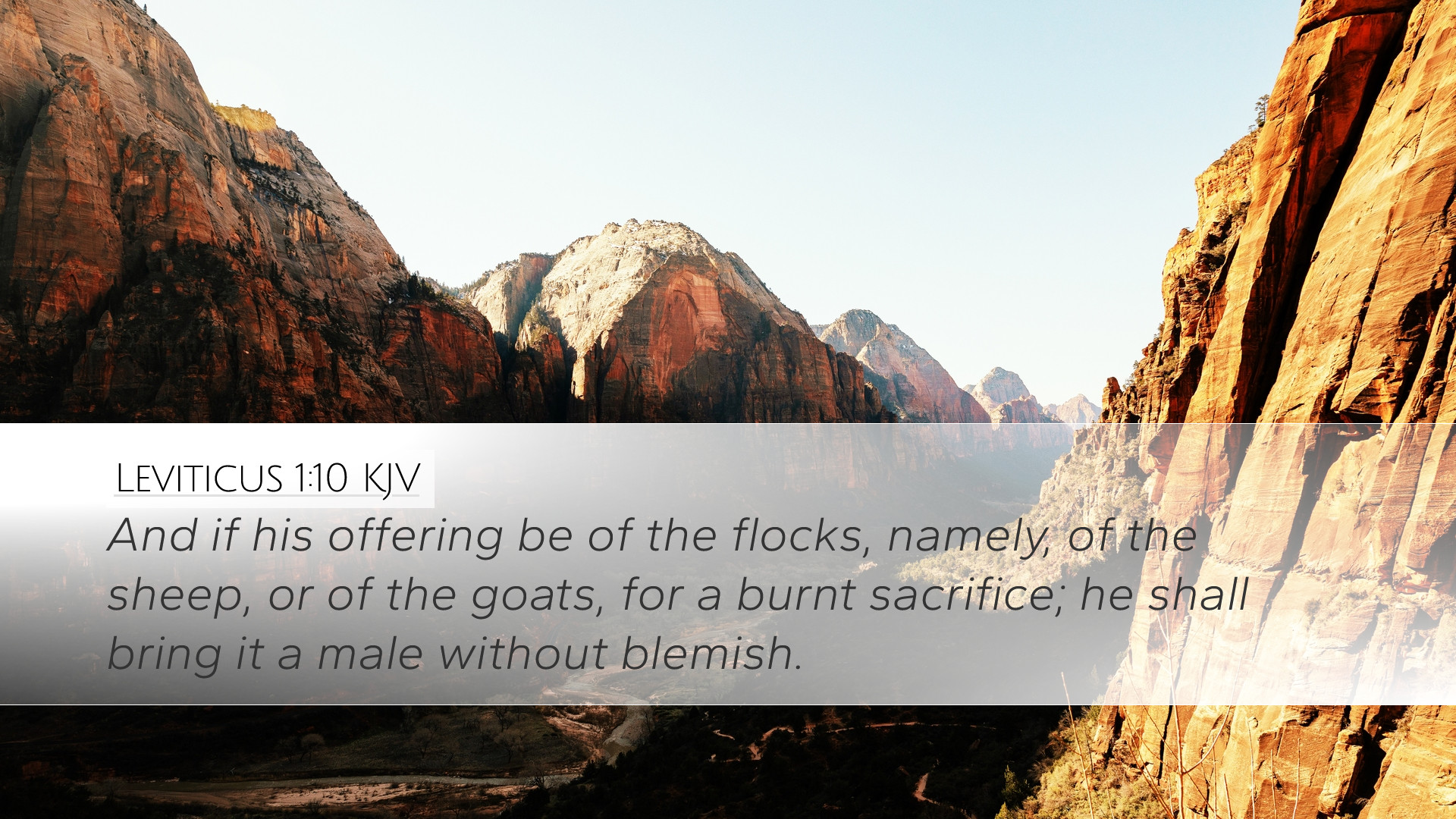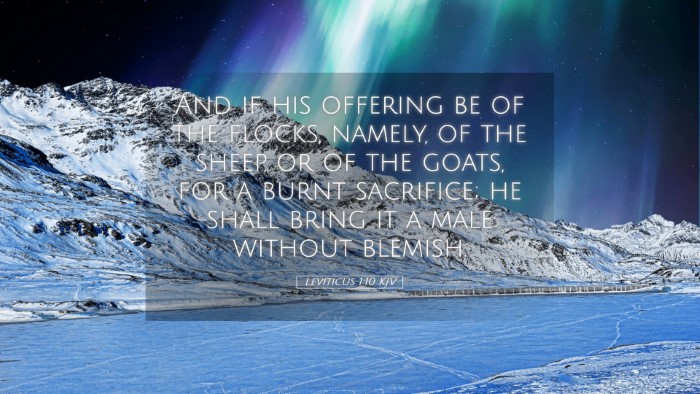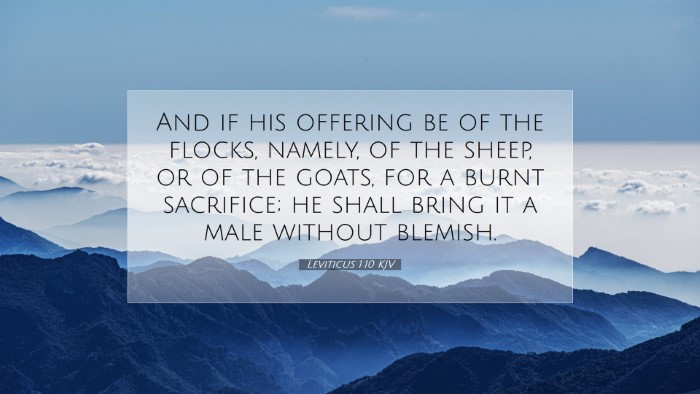Commentary on Leviticus 1:10
Introduction
Leviticus 1:10 presents a crucial aspect of the sacrificial system instituted in the Mosaic Law. It states, "And if his offering be of the flocks, namely, of the sheep, or of the goats, for a burnt sacrifice; he shall bring it a male without blemish." This verse outlines the requirements concerning the type of animal acceptable for burnt offerings. Various esteemed public domain commentaries offer profound insights into the theological and practical implications of this directive.
Matthew Henry's Commentary
Matthew Henry emphasizes the significance of the burnt offering as a means of expressing total dedication to God. Unlike other offerings, which might involve a portion being consumed by the priests or returned to the offerer, the burnt offering symbolizes complete surrender. Henry points out that the requirement for a male without blemish signifies the need for purity and perfection in the offerings presented to God, foreshadowing the ultimate sacrifice of Christ who is without sin.
Moreover, Henry highlights the importance of the flock in Hebrew culture, symbolizing wealth and pastoral blessing. By selecting from the flock, the offerer acknowledges God's provision and care over His people. The stipulation of a male also carries the connotation of strength and leadership within the community, reflecting the holiness required in approaching God.
Albert Barnes' Commentary
Albert Barnes elaborates on the context of the Levitical laws, noting their importance in establishing a covenant relationship between God and Israel. He explains that the offering of animals, specifically males from the flock, points to the necessity of approaching God with the finest of one's possessions. Barnes highlights the practical aspect that offerings were not simply ritualistic; they represented the worshiper's heart and commitment to serving God.
- Purity Required: Barnes emphasizes the need for 'without blemish' as a representation of moral purity, reflecting the believer's character in worship.
- Foreshadowing Redemption: He also sees this sacrificial system as a precursor to the New Testament revelations, particularly the perfect sacrifice of Christ, who meets all requirements of the law.
Adam Clarke's Commentary
Adam Clarke provides a thorough examination of the text, noting its implications for Israel's understanding of sacrifice. He remarks that the specific mention of goats and sheep illustrates God's recognition of the agricultural lifestyle of the Israelites. Clarke notes that the emphasis on a male without blemish signifies not only the quality of the offering but also serves to inspire believers to present their best to God.
Clarke also discusses the communal aspects of sacrificial offerings, where the individual offering represents not just personal spirituality but the collective worship of the community. The acceptance of a male without blemish prefigures Christ’s redemptive work, emphasizing that God requires the best in a sacrificial context, a principle that extends beyond the Old Covenant into the life of the believer today.
Theological Implications
Collectively, these insights present several key theological implications regarding Leviticus 1:10:
- God’s Holiness: This verse underscores God's nature as holy, requiring His people to approach Him with offerings that reflect His righteousness.
- Christ’s Atonement: The concept of a male without blemish stands as a type of Christ, emphasizing His qualifications as the sacrificial Lamb of God.
- Worship as Total Commitment: The burnt offering illustrates the believer’s total dedication to God, representing more than mere ritual but a heartfelt relationship.
- The Community Aspect: The sacred act of offering fosters a community identity among the Israelites, emphasizing collective adherence to God’s demands.
Practical Applications for Today
For pastors, theologians, students, and Bible scholars today, Leviticus 1:10 serves as a reminder of the nature of worship and sacrifice in the life of a believer.
- Dedication: Consider what it means to dedicate oneself fully to God in worship, giving Him our best in service, time, and resources.
- Self-Examination: Reflect on the quality of personal offerings—are we presenting our lives, our time, and our gifts without blemish?
- Understanding Sacrifice: Acknowledge the gift of Christ, understanding Him as the ultimate sacrifice that fulfills this Levitical standard and provides the pathway to redemption.
Conclusion
Leviticus 1:10 in conjunction with the reflections from notable public domain commentaries provides a rich understanding of the principles of sacrifice, holiness, and worship. It challenges contemporary believers to reflect on the nature of their offerings to God—encouraging a posture of surrender, a commitment to spiritual purity, and an appreciation of God's ultimate sacrifice in Jesus Christ.


